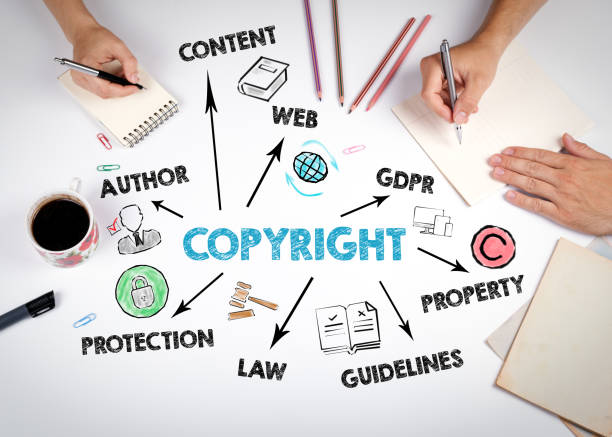
IMPORTANCE OF INTELLECTUAL PROPERTY TO GROWING BUSINESS INTRODUCTION
With technology and information at the heart of society, businesses are increasingly aware of the value of their intellectual property (IP) and the importance of protecting it properly. Increasingly, ideas and innovations are used by their creators for competitive advantage by being licensed, rather than sold, so that their application is where commercial success is to be found..

It would be difficult to find a business that does not own and/or depend on intellectual property, intellectual property is about growing your business. It’s about creating and protecting the core assets of your business— intangibles. Most businesses depend in large part on intangible assets. And paying attention to intangible business assets and to intellectual property is not just a good defence, it’s a good offense, a way to build a business and to create products and services and long-term business value.
Business leaders believe that, in a world where battles are increasingly being waged not for control of markets or raw materials but for the rights to new ideas and innovations, the management of intellectual property must become a core competence of the successful enterprise. Knowing what intellectual property assets a business has, and ensuring that it has taken appropriate steps to protect those assets, is the important first step in securing a business’ foundations. By way of a brief overview, the key intellectual property rights are as follows.
Patents protect inventions (e.g. technologies and technological processes) that are new and involve an “inventive step”, i.e. that are not obvious to a reasonably skilled person in the relevant sector. While the process of obtaining a patent can take time, once granted a patent provides strong protection and a valuable business asset that can be licensed to others to generate revenue. Patent gives the owner of a patent the right to exclude others from using the invention without the owner’s permission.
Copyright law protects writings and other expression of ideas fixed in a tangible medium and allows the owner of a copyright to prevent others from copying, adapting, publishing, performing, or displaying the protected work without the owner’s permission.
Registered designs protect the appearance of the whole or part of a product. To be capable of registration a design must be novel and of individual character.
Registered Trademarks are distinctive signs or symbols used by traders to distinguish their products or services from those of other traders. Trademark law protects unique letters, words, names, logos, slogans, catch phrases, symbols, designs, or similar devices (including combinations of the foregoing) that indicate and identify a particular source for products or services and distinguish them from the goods and services of others (think COKE versus PEPSI) and lets someone who has built a brand embodied in such a mark stop others from diverting business through the use of a confusingly similar mark.
Trade secrets law protects a wide range of confidential business information and lets owners of such information preserve its confidentiality and take legal action against its misappropriation
WHAT ARE INTANGIBLE BUSINESS ASSETS?
Examples of intangible business assets include:
• Knowledge, know-how, skills, experience;
• Ideas, information, concepts, inventions;
• Designs, drawings, writings, formulas;
• Plans, policies, methods, procedures;
• Branding, reputation, name recognition.
Some intangibles may be embodied in media such as writings or computer records, while others exist only in the mind. In any event, we are talking brain power and creativity: What you know, and what you create or invent.
Along these lines, think about your business operations: How you get things done in your business and in serving your clients and customers. Also, consider the impact of intangibles beyond your business operations, such as relationships, brand identity, and reputation: Whom you know, how you distinguish yourself from your competitors, and how your customers or clients regard you.
IMPORTANCE OF INTELLECTUAL PROPERTY IN ORDER TO GROW YOUR BUSINESS
First of all, intangibles are the foundation upon which new businesses are built. Lacking any track record at the outset, a business start-up usually has nothing more to show in its favour than a bunch of core ideas or inventions, combined with the background, reputation, and personal connections of the founders. Along these lines, the new business might be based on a unique idea or concept, perhaps an invention or new technology, or an improvement over existing technology, or simply a new or better way of doing things. A new service business might be based on the unique talents, skills, and experience of its founders.
On this basis alone, the new business has to do all the things that are necessary to grow, like convincing key people to come on board, or persuading outside investors to provide capital. Once the business is up and running, intangibles impact how the business operates internally, how it creates, markets, and delivers its goods or services to clients and customers, and how it distinguishes itself from competitors through its reputation in the market. For instance, regardless of industry, businesses appeal to clients or customers through the reputation and name recognition associated with their goods or services.
Especially if a product or service is somewhat generic, what makes a buyer choose one vendor or service provider over another is mainly driven by brand recognition. For instance, in Nigeria, any noodle is termed INDOMIE simply because of the brand recognition. Before now, toothpastes are also called MACLEAN just like seasonings are regarded to as MAGGI. Overall, most businesses are built upon and operate around some combination or another of various key intangibles and rely on information, methods, or processes to gain an edge over competitors and succeed.
Moreover, though we usually associate intangibles with “soft” industries—for instance, software, technology, or entertainment, make no mistake: intangible business assets impact all industries. A good example of this kind of intangible asset is the formula for Coca Cola, which has remained locked away as a trade secret for almost a century.
CONCLUSION
Consequently, in their Harvard Business Review article, Rivette and Kline conclude that “even for manufacturing firms, the bulk of their value now lies in their intellectual assets. Given that fact, it’s appropriate to ask how well these assets are being managed and used. The answer, in most cases, is not very well.” Most of all, size doesn’t matter. You don’t have to be running a multinational business empire to depend on intangibles.
Cultivating know-how and experience, protecting confidential business information, and building a good reputation are just as important to solo practitioners and small businesses as to large companies. Whether you are competing as a professional services provider or a plumber or landscaper within a local community or whether you are running a global consumer products or Software Company, your success depends in large part on intangibles. For these reasons, just as it’s important to have legal rights and protections concerning tangible business assets, it’s at least equally important to pay attention to rights and protections concerning intangible assets.



